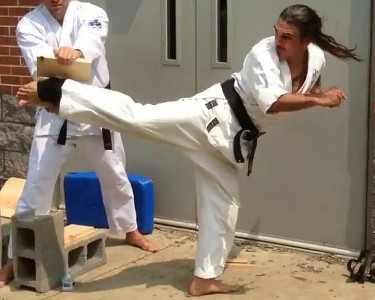
In Chinese Medicine, we say that "shen (神) leads qi (氣)". Shen (in Japanese, shin) is our spirit or mind, and qi (ki in Japanese) is our energy, though we don't mean "energy" here in the same way that your physics teacher does.
Sometimes it's said that shen leads yi (意 -- focus, concentration, studying memory) which then leads qi. And sometimes we say that qi leads blood (血) or jing (精, essence), both of which are sort of seen as more solidified forms of qi. But the important point is that the mind leads the rest.
In medicine, we can see this at work in the placebo and nocebo effects. If you give a sick person a pill and tell them it will help them feel better, even if it's just a sugar pill -- a piece of candy -- sometimes it will really help. When my mom was a nurse, they would do this if a patient's pain meds weren't working but they couldn't give them more yet. They'd tell the patient a whole story about this special pill: "I checked with the doctor and he said I can give you one of these, but only one, it's really strong." And sometimes this would work, their pain would stop even though it was just a sugar pill.
It can work the other way too. If you get someone to believe that something is harmful, that belief can make them feel bad. If you tell someone that a medicine has certain bad side effects, they're more likely to experience them. There are even cases of people who believe they've been cursed, and their belief pretty much scared them to death. That's sometimes called "voodoo death" or "hex death". (By the way, real voodoo is about a lot more than cursing people. I've met some pretty cool people who do the real thing. But that's what this phenomenon got called back in the 1940s.)
You can see this in sports, too. If you give somebody a sugar pill and tell them it's a special nutritional supplement or a steroid, they might run faster or lift more weight. And if you tell someone a weight is less than it really is, they're more likely to be able to lift it.
The general point is that our mind leads our body. And that's important in the martial arts.
You've probably had me tell you to turn your head and look before turning during kata practice. There are good practical reasons for that, like not running into other students, but more importantly it's about having your mind lead your body. If your eyes are pointed one way then your attention is focused that way and it's hard to move your body powerfully in another direction.
You have to set your attention and your intention before you can move with power. Now maybe when you get to grandmaster level you have your eyes one way and your attention somewhere else, maybe Kaicho can do that, but for the rest of us where your head is pointing is where your attention is going to go. If you're looking one way and moving another you've split your focus. There's no kime.
So look first. Give the problem your full attention, and your full intention to solve it. Then your action can be strong and effective.